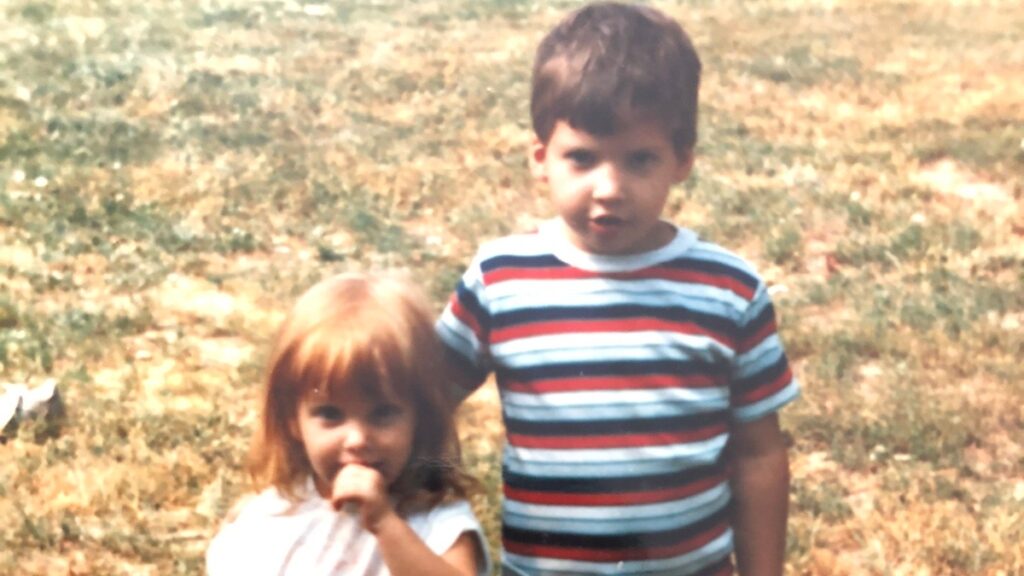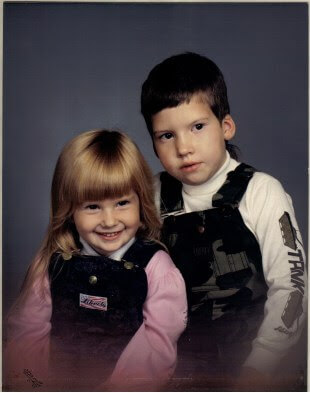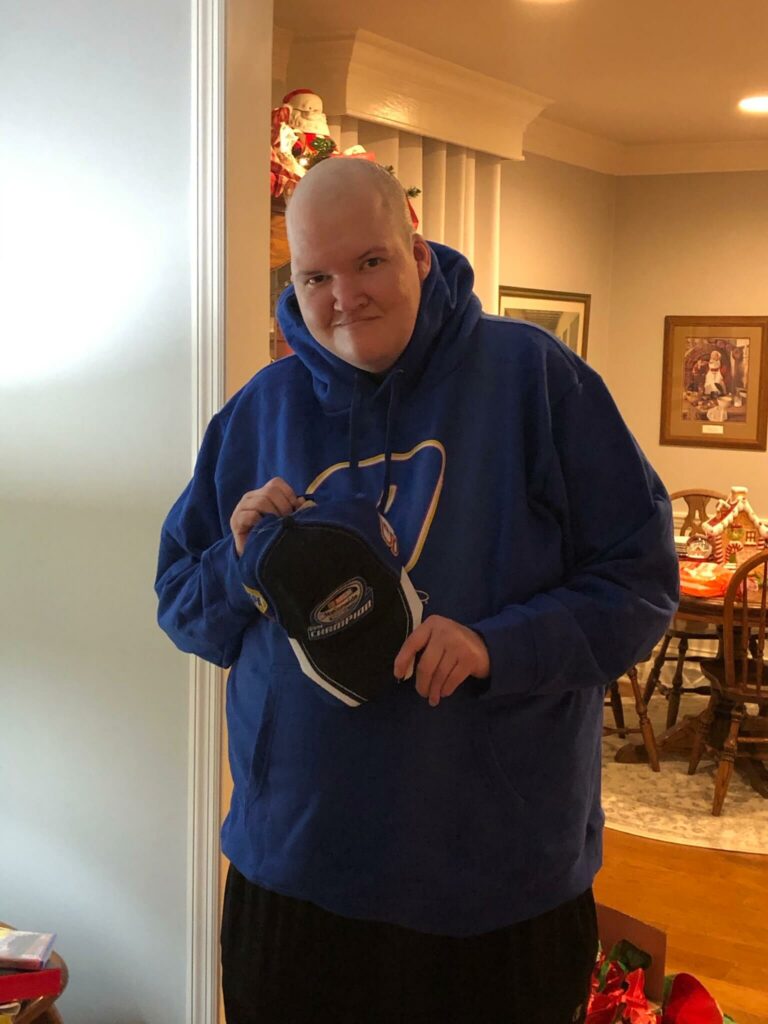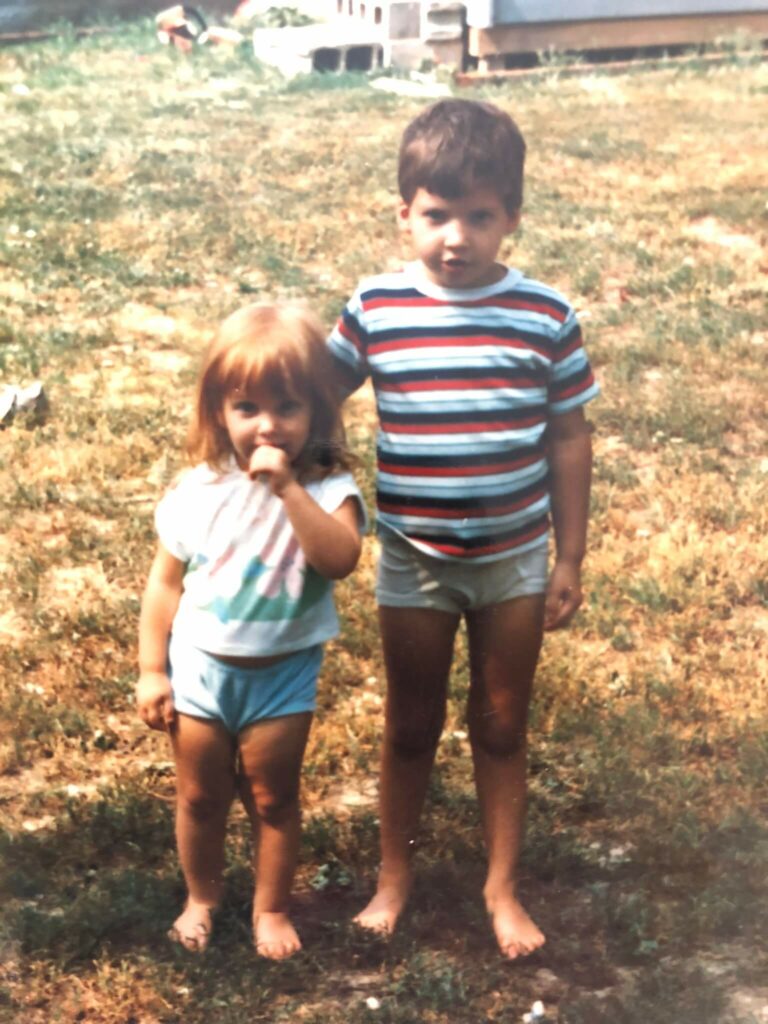The Guilt I Carry Because I was the Neurotypical Sibling

For most 18 year olds, leaving home to go to college is a rollercoaster of emotions. This next chapter can bring feelings of excitement at the new freedoms ahead or nervousness to leave parents and the comfort of home. And while I had those typical emotions, I had one feeling that far outweighed all of the others.
Guilt.
What could an 18-year-old, ready to take on college in the pursuit of her future career, possibly have to feel guilty about?
I was leaving my brother behind. My big brother, who was born with a rare chromosomal disability, would never go to college, would never experience leaving home.
I remember crying the entire hour as I drove down the parkway, my car loaded down with everything for my dorm. Leaving for college is supposed to be one of those milestone experiences in a person’s life, but for me and my family…it brought an unsettling transition.

I was leaving my parents alone to support my brother. I could no longer provide them the same respite I always had or serve as a buffer for him. But most of all, I was leaving Nick. How would he be without me there to help him, include him, support him?
Growing up with Nick, that feeling of guilt would creep in often.
I felt guilty that things came easily to me.
I felt guilty having a lot of friends and going to do things with them, while Nick stayed home.
I felt guilty I was smarter than him.
I felt guilty that I had better health than him.
I felt guilty that I got my driver’s license.
I felt guilty that I had opportunities that he didn’t.
I felt guilty that I was me and Nick was Nick.
I can’t even begin to count how many times I asked the question, “Why don’t I have the disability?”
Without an answer to that question, I downplayed my successes and accomplishments to preserve Nick’s feelings. I remember dragging him to my softball games to offer him some type of social platform, thinking this could provide him a sense of playing a sport. (He did love my softball games. But let’s be real… it was because his real sport was the concession stand.)
The guilt I had as a child was different from the guilt I felt that day driving to college, which is different from the guilt I feel as an adult. Guilt has this funny way of growing with us it seems.
After college, I got married. I began my career. I had kids. I moved on and Nick didn’t. My guilt today is knowing that my big brother will never experience those milestones. He will never get married, have kids or a career.
No matter how strong this guilt was then or is today, and the other emotions that come with being a sibling to someone with a disability, one thing will always remain the same…I wouldn’t change it for the world.

These feelings made me, well, me. These feelings forced me to look at life from a different viewpoint. They made me grateful for the simplest blessings. I became empowered by these feelings and as I learned to work through them, they shaped me into the person I am proud of today.
My Imprint
Parent takeaway: Understand that your neurotypical developing child doesn’t understand that it is guilt they are feeling. Without the ability to name the emotion, it may come out as frustration, sadness, or outbursts. Be open with your child on the emotions you personally cycle through about having a child with a disability. Let them know it is OK to feel guilt. Don’t discredit their feelings, just acknowledge them, give them understanding and help them process the emotion. Reassure them it’s OK to be who they are and OK to feel any emotion. Try not to provide extra guilt on them by comparing them to their siblings- as effort for them to understand the disability. This could place an unsettling guilt within them that they should hide who they are, because their sibling is different from them.
Teacher takeaway: Be aware of the cycle of emotions a student in your class might be going through if they have a sibling with a disability. Open a line of communication with them because they might not want to share these feelings with their parents. Your student may feel their parents are already dealing with enough worry and stress and don’t want to create more burden. You don’t have to know what to say, just listen.
Anyone: If you know someone who has a sibling with a disability, just be aware that they more than likely feel a full spectrum of emotions. Offer a listening ear. Never try to discredit their feelings or relate to something you have no experience with.
Guilt was a significant emotion I felt in my relationship with Nick, but certainly not the only one. To understand the wide range of emotions I felt as a sibling to someone with a disability, check out my ebook here.

Written by, Amanda Owen
Amanda Owen is the author and podcaster behind Pieces of Me. She is the founder and executive director of Puzzle Pieces, a nonprofit organization serving those with intellectual disabilities.
Interested in writing for Finding Cooper’s Voice? LEARN MORE
Finding Cooper’s Voice is a safe, humorous, caring and honest place where you can celebrate the unique challenges of parenting a special needs child. Because you’re never alone in the struggles you face. And once you find your people, your allies, your village….all the challenges and struggles will seem just a little bit easier. Welcome to our journey. You can also follow us on Facebook, subscribe for exclusive videos, and subscribe to our newsletter.

